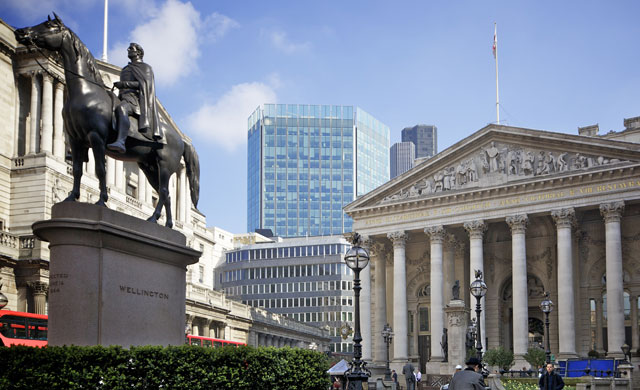With the release of the official July 2012 Retail Price Index, rail passengers can now calculate how much more they will be paying on average for the same tickets. Excluding Northern Ireland, where fares are not related to RPI, rail users will experience higher prices throughout the UK come 1 January 2013. While RPI is expected to increase by 3.2% at the start of next year, English fares will rise an additional 3% on average, while Scottish prices will increase by 1% above RPI. Wales has not settled on its increases yet.

While the 3% increase above inflation marks the average in England, some tickets will experience ever more drastic rises in price. Train operators are allowed to add a 5% further increase for some tickets, so long as they counterbalance this with increases below the average on other fares. This means some tickets could cost as much as 11.2% more starting 1 January 2013. With past increases in fare prices, many train companies exploit this loophole by enforcing more significant raises on prices for routes where there may be no alternative train services or transportation options and counteracting this with smaller increases on routes where other companies offer competing services.
This announcement marks 10 consecutive years bringing increases above inflation in England’s rail fares, making these tickets some of the most expensive in Europe.
For some passengers commuting daily from smaller cities to London, these continual increases are taking serious chunks of salary. The Transport Salaried Staff’s Association (TSSA) identified some yearly passes that will cost more than £5000 after these increases. By 2015, some season passes may costs more than £1000 more than when the coalition government formed in 2011. Current figures suggest some passengers are already spending as much as 10% of their pre-tax salary on transportation to and from work.
Chief Executive for the Campaign for Better Transport, Stephen Joseph, calls these increases “untenable” as it could mean “rail fares will rise three times faster than salaries” in some circumstances. He also argues that rail passengers are being singled out because “the government knows they can’t continue to hit [automobile] commuters – that’s why they’ve postponed the fuel duty increase.” Joseph demands that railways “need to be affordable to ordinary people”, which is only possible if the government shows the same mercy that has benefitted car commuters.
Manuel Cortes, leader of the TSSA union, took the argument one step further claiming, “motorists don’t fund new roads and air passengers don’t fund new airports.” By this logic, rail passengers should not be subjected to shouldering the burden of operation costs and investment.
In addition to the price increases, rail passengers are upset that they will be getting even less for their money. Union reports estimate that as many as 20,000 railway staff will lose their jobs in the coming years. Additionally, cuts to the frequency of trains are anticipated, making travel less convenient and more crowded. Trades Under Congress (TUC) Deputy General Secretary Frances O’Grady demands “cuts to rail fares, not rail staff.”
Earlier this year, Transport Secretary Justine Greening committed herself to ending “the era of inflation-busting fare rises”, but is being criticized for a lack of action supporting her promise. She recently announced a £9 billion investment plan to improve the rail network, but it is anticipated to be partly funded by current and future increases in fare prices.
As recently as two years ago, operation costs and investment were split evenly between rail fares and tax money, but government has asked for cuts to taxpayer subsidies, which means ticket revenue must cover a larger portion of the costs. In the next two years, government hopes that passengers are paying as much as 75% of these costs.
Greening claims she will ask that these fare increases be partially offset by any available government funds. Last year, similar increases were expected, but ended up closer to 1% as the government used excess funds to cover part of the costs. However, this not expected to be repeated come January 2013.
The Chief Executive of the Association of Train Operating Companies, Michael Roberts, argues that train companies simply adhere to government’s requirements regarding ticket prices and fares and have limited flexibility. He noted that government policy has dictated that passengers pay a larger portion of operating costs over the past eight years so that tax money can be invested in improving and expanding the rail network’s capabilities.
Rail Minister Teresa Villiers offered her support claiming the government is “determined to get the cost of running the railways down” in the long-run. “Our reform plans aim to deliver £3.5 billion in efficiency savings while continuing to expand services for passengers. Savings on that scale will enable us to end above inflation fare rises.”
Whether these long-term investment plans will actually ease some of this burden on rail passengers is unclear, but fares are expected to increase by similar figures above inflation in 2014 with plans for an additional 1% increase in 2015. Some passengers are asking that part of these transportation costs be recovered through tax breaks, although this does not seem probable. In the short-run rail passengers will be forced to reallocate their money to ensure that they can get to and from work each day, leaving them with less money for living expenses, child care, and other necessities.

 Hot Features
Hot Features














You could definitely see your enthusiasm in the paintings you write. The arena hopes for more passionate writers like you who are not afraid to say how they believe. At all times follow your heart.